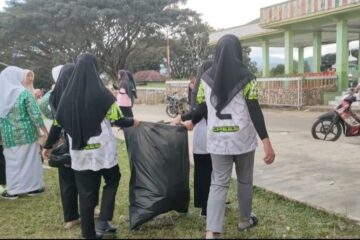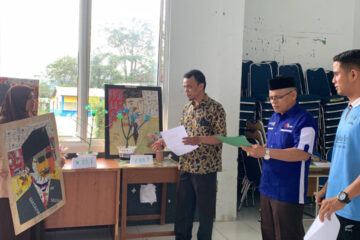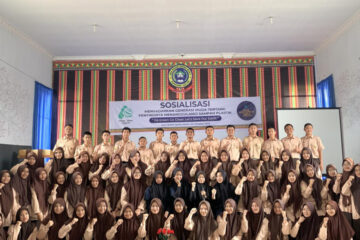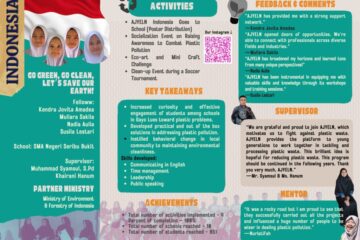
The “AJYELN Indonesia Go to School” event on October 3, 2023, lasting from 10:00 AM to 6:00 PM, is a crucial effort to raise awareness about the issue of single-use plastics. We, as members of AJYELN, diligently visited 10 high schools (SMA) in Gayo Lues. The schools we visited include:
- SMA Negeri Seribu Bukit
- SMA Negeri 1 Blangkejeren
- SMA Negeri 1 Kotapanjang
- SMA Negeri 1 Blangjerango
- SMA Negeri 1 Blangpegayon
- SMA IT Bunayya
- MAN 1 Gayo Lues
- Pesantren Modern Darul Hijrah Al Madaniyah
- SMK Negeri 1 Gayo Lues
- SMK Negeri 2 Blangkejeren
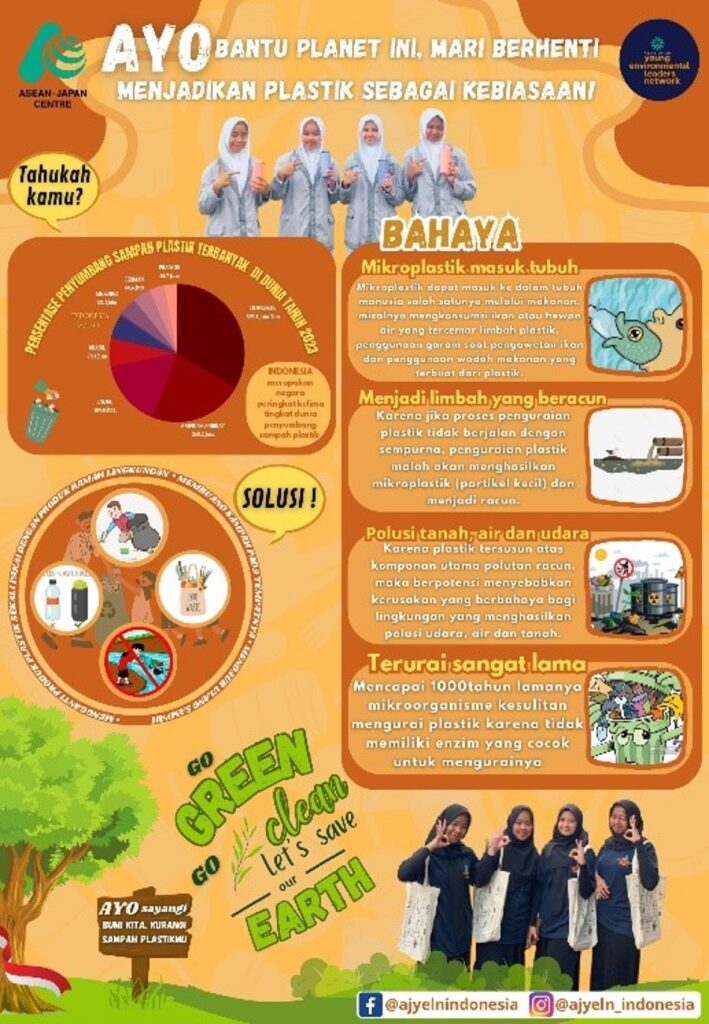
Our purpose was to provide their students comprehensive education on plastic-related issues. The posters we distributed contained valuable information about plastic, including its definition, dangers, solutions, and the latest facts about plastic waste. Our primary objective was to deepen the students’ understanding of the hazards of single-use plastics. Additionally, we aimed to raise awareness among students and the surrounding community about the importance of loving and caring for the environment.
This endeavor represents a concrete step in supporting global efforts to reduce single-use plastic consumption and preserve our environment. We are committed to actively playing our part in educating and raising awareness about the negative impacts of single-use plastics. Through this activity, we hope to collectively create positive change for our planet.
Details of the event
Here is a more detailed sequence of activities related to the campaign to reduce plastic waste by the AJYELN Indonesia team to students:
- Campaign Planning: The AJYELN Indonesia team, consisting of environmentally conscious students, initiated the planning of a campaign to reduce plastic waste. We decided to create educational posters as our primary communication tool.
- Poster Design: We collaborated to design attractive and informative posters about plastic waste reduction. These posters included information about the environmental dangers of plastic waste and concrete suggestions for action.
- Poster Printing: Once the designs were finalized, we researched eco-friendly printing options.
- School Permissions: Before distributing the posters in schools, we sought permission from the school authorities.
- Poster Distribution Session: After obtaining permission, we organized poster distribution sessions in the school’s auditorium. We set up stands with our posters and provided additional information about plastic waste reduction.
- Education and Interaction: During the sessions, we passionately explained the messages within the posters to the students. We also promoted the use of eco-friendly products and discussed practical steps that students could take.
- Monitoring and Evaluation: After the campaign concluded, we monitored its impact. We checked whether students had reduced their use of single-use plastics and how their awareness of this issue had developed. With this campaign, the AJYELN Indonesia team successfully disseminated an important message about reducing plastic waste to fellow students, motivated environmentally friendly behavior changes, and created a more sustainable school environment.
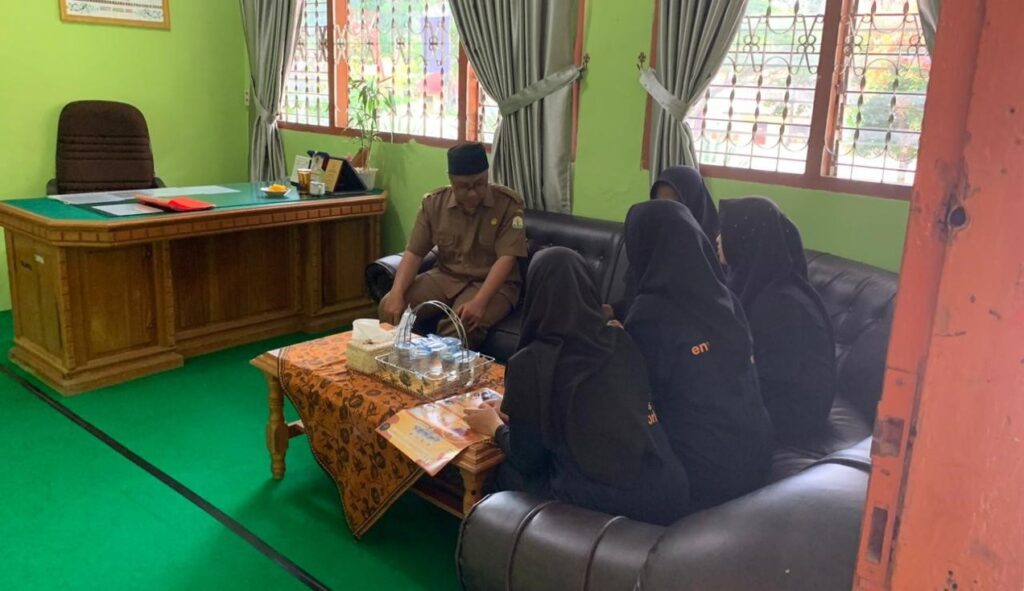
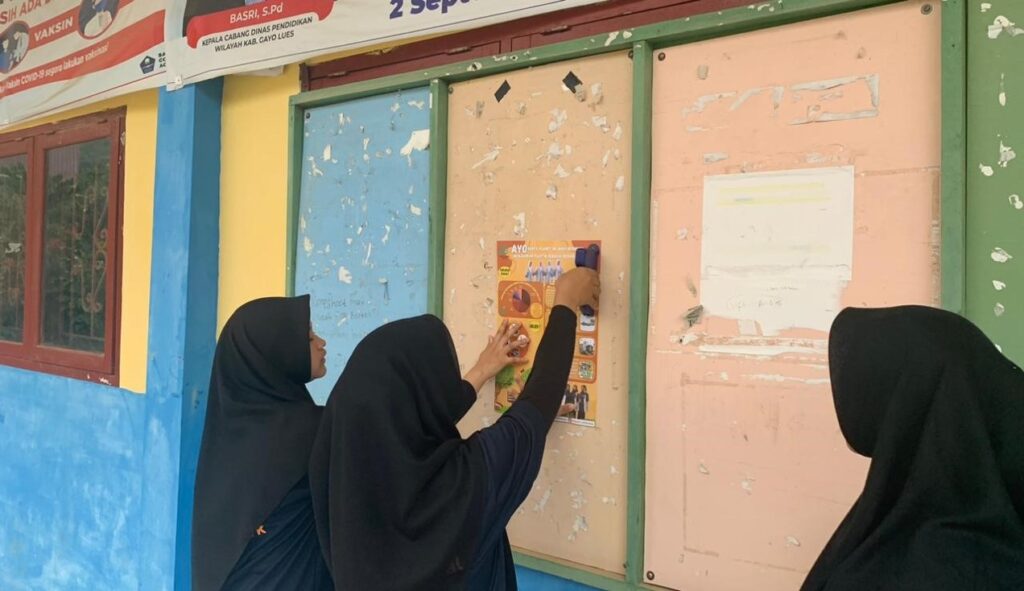
Key findings
Through the program, we noted that:
- Active Student Engagement: Students actively participated in the campaign, showing a keen interest in understanding plastic waste issues.
- Effective Poster Design: Well-designed posters effectively conveyed the dangers of plastic waste and potential solutions, capturing students’ attention.
- Supportive Schools: Schools were supportive, granting necessary permissions, indicating a willingness to engage in environmental awareness programs.
- Improved Awareness: Awareness of the environmental impact of single-use plastics significantly increased among students.
- Behavioural Changes: Students adopted eco-friendly practices, reducing their plastic consumption.
Outcome
From distributing posters focusing on the dangers of microplastics, soil and air pollution, as well as solutions for reducing plastic waste, several achievable outcomes are
- Increased Awareness: Students who receive the posters gain a better understanding of the dangers of microplastics, soil and air pollution, and their long-term consequences for the environment and human health
- Knowledge of Solutions: Students reading the posters also acquire knowledge of concrete solutions, such as using recycled products, waste separation, and more sustainable alternatives, and are more aware of the dangers of single-use plastic waste.
- Attitude Change: These posters can change students’ attitudes toward plastic use, making them more environmentally conscious.
- Participation in Solutions: Some students may be inspired to actively engage in environmental activities in school or the community.
- A More Environmentally Friendly School Environment: The posters can encourage schools to adopt sustainable practices.
Therefore, the outcomes of distributing these posters include increased awareness, behavior changes, knowledge of solutions, and contributions to larger efforts to reduce plastic waste. The posters serve as an effective tool for disseminating messages and inspiring positive actions.
Feedback
After the interviews we conducted at the beginning of the activity, we noticed changes that were subsequently evaluated through surveys by filling out questionnaires. For instance, the students we interviewed about the use of plastic bottles at their school have since changed this habit by bringing a reusable tumbler with them to school every day.
Numbers of students’ answers in the pre-survey
We got the survey results before distributing (socializing)/pasting posters in the schools we visited by interviewing several students. We asked several questions such as: Are they required at school to wear tumblers to school every day? Does their school still have a lot of rubbish thrown away inappropriately? They answered with an average answer that only a few students brought tumblers to school and even then, only occasionally and at several schools the students still often threw rubbish out of place.
Number of students’ answers in the post-survey:
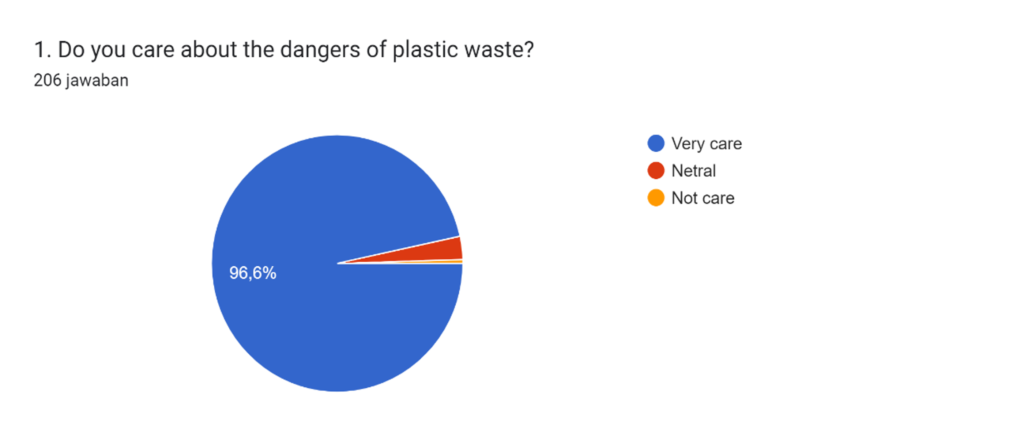
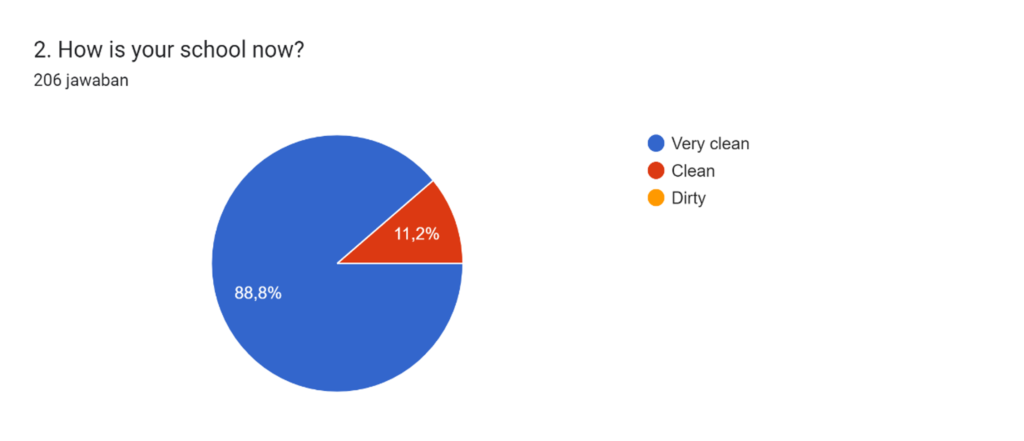
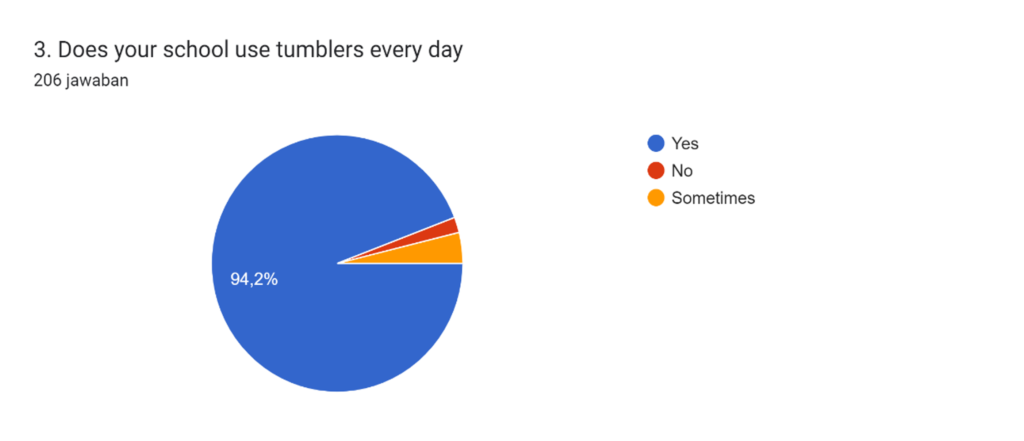
Conclusion
Through various posters aimed at raising awareness about the dangers of plastic waste, it can be concluded that public awareness of this issue has increased. These posters have encouraged individual actions, such as reducing single-use plastic consumption, and have the potential to influence policies and business practices that support plastic waste reduction for a more sustainable environment.


